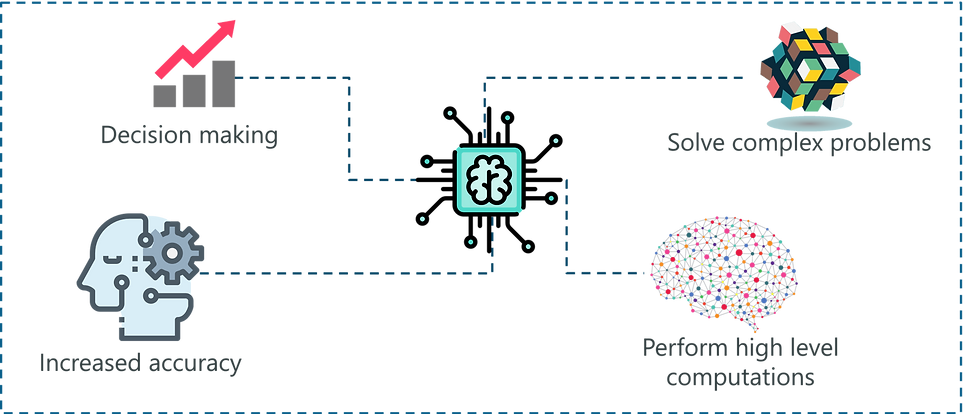Meta AI Division: Innovating the Future of Artificial Intelligence in 2025
- Abhinand PS
.jpg/v1/fill/w_320,h_320/file.jpg)
- 6 days ago
- 3 min read
Meta AI Division: Innovating the Future of Artificial Intelligence in 2025
Artificial Intelligence (AI) is transforming how we live, work, and communicate, and Meta’s AI division stands at the forefront of this revolution. In 2025, Meta AI continues to push boundaries with groundbreaking research, innovative applications, and ethical frameworks guiding the responsible development of AI technologies. Whether you are a technology enthusiast, industry professional, or curious learner, understanding the evolution and impact of Meta AI’s work is essential for grasping the future of artificial intelligence.

What Is the Meta AI Division?
Meta AI is the dedicated artificial intelligence research and development arm of Meta Platforms, formerly known as Facebook. Established to explore foundational AI techniques and build practical AI products, this division seeks to advance machine learning, natural language processing, computer vision, and other AI domains to power Meta’s vast ecosystem — including social platforms like Facebook, Instagram, and WhatsApp — and create new frontiers in AI.
Key Focus Areas of Meta AI in 2025
Meta AI’s work in 2025 targets several vital AI segments that align with both technical progress and real-world needs:
1. Large Language Models and Conversational AI
Building on breakthroughs in natural language understanding, Meta AI designs next-generation language models that deliver human-like dialogue, multilingual translation, and deeper contextual comprehension. These models support intelligent chatbots, content moderation, and creator tools within Meta’s apps.
2. Computer Vision and Augmented Reality
With Meta’s heavy investment in the metaverse and AR/VR, the AI division develops computer vision algorithms to interpret real-world environments, recognize objects, and enable immersive mixed-reality experiences. This includes AI-powered UIs for Meta’s Oculus devices.
3. Responsible AI and Ethical Frameworks
Meta AI actively promotes fairness, transparency, and bias mitigation in AI systems. It integrates ethical safeguards into product pipelines, prioritizing user privacy and safety while fostering trustworthy AI deployments in social media and beyond.
4. AI Hardware and Efficiency
Advances aren’t limited to software — Meta AI explores AI-specific hardware accelerators and energy-efficient model designs, enabling scalable AI computation at lower costs and reduced environmental impact.
Real-World Applications Powered by Meta AI
Meta AI’s research translates into direct benefits for users and businesses worldwide. Here are a few standout applications in 2025:
Content Personalization: AI-driven recommendations tailor news feeds, stories, and videos to individual preferences with greater precision.
Automated Content Moderation: Meta AI uses vision and NLP tools to detect harmful or misleading content rapidly and accurately.
Metaverse Interaction: Enhanced avatars, spatial audio, and environment recognition rely on AI innovations shaping Meta’s virtual worlds.
Accessibility Features: AI-powered captioning, translation, and voice commands improve accessibility for users with disabilities.
Comparing Meta AI’s Innovations to Industry Trends in 2025
While tech giants like Google DeepMind and OpenAI lead in foundational AI breakthroughs, Meta AI distinguishes itself through its unique blend of research excellence and integration into billions of daily social interactions. This user-centric approach, combined with heavy investment in AI ethics and metaverse potentials, positions Meta as a pivotal player in shaping practical and responsible AI.
Quick Facts About Meta AI Division
Topic | Key Details |
Founded | 2013 (as FAIR, Facebook AI Research), rebranded under Meta in 2021 |
Focus | NLP, computer vision, robotics, metaverse AI, ethics |
Notable Projects | Large language models (LLaMA), AI content moderation, AR/VR AI features |
Ethical Initiatives | Bias mitigation, transparency, privacy-first AI design |
Collaboration & Open Source | Partners with academia; open-source AI tools and datasets |
FAQs About Meta AI Division in 2025
Q1: How does Meta AI ensure responsible use of artificial intelligence?A1: Meta AI incorporates fairness audits, bias detection tools, privacy protections, and transparent AI explainability into development workflows to minimize unintended harm and build trust.
Q2: What role does Meta AI play in the metaverse ecosystem?A2: Meta AI powers immersive AR/VR experiences through spatial understanding, avatar intelligence, object recognition, and natural language interfaces, making virtual interaction more seamless and humanlike.
Q3: Are Meta AI’s technologies available to developers outside Meta?A3: Yes, Meta AI actively contributes to the AI community by releasing open-source models like LLaMA and providing APIs that developers can build on for research and commercial purposes.
Conclusion: Why Meta AI Matters in 2025 and Beyond
Meta AI stands as a cornerstone of innovation in the AI landscape, blending deep technical expertise with a commitment to ethical, user-focused solutions. As AI continues to embed itself in daily life—from powering social connectivity to crafting immersive virtual worlds—Meta’s AI division will remain a critical force driving these transformations responsibly.
For further reading on emerging AI trends and tech insights, check out related posts on abhinandps.com, including deep dives on natural language processing and AI ethics.
Stay updated, stay curious, and embrace the AI-driven future with confidence!



Comments